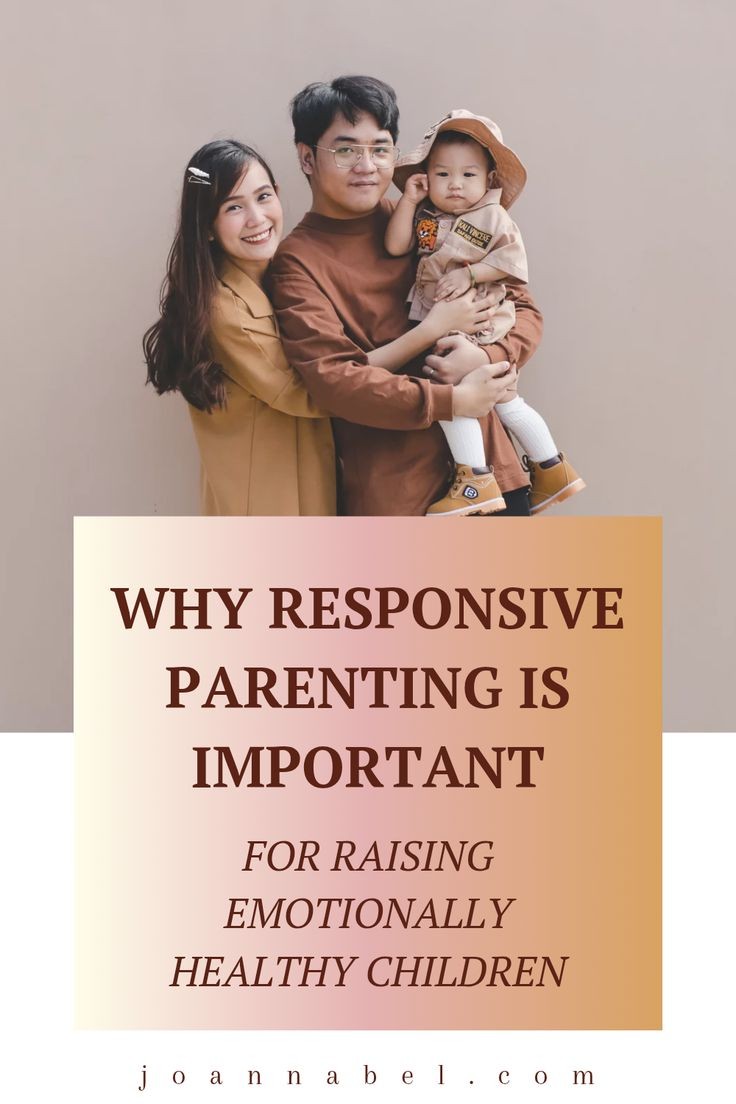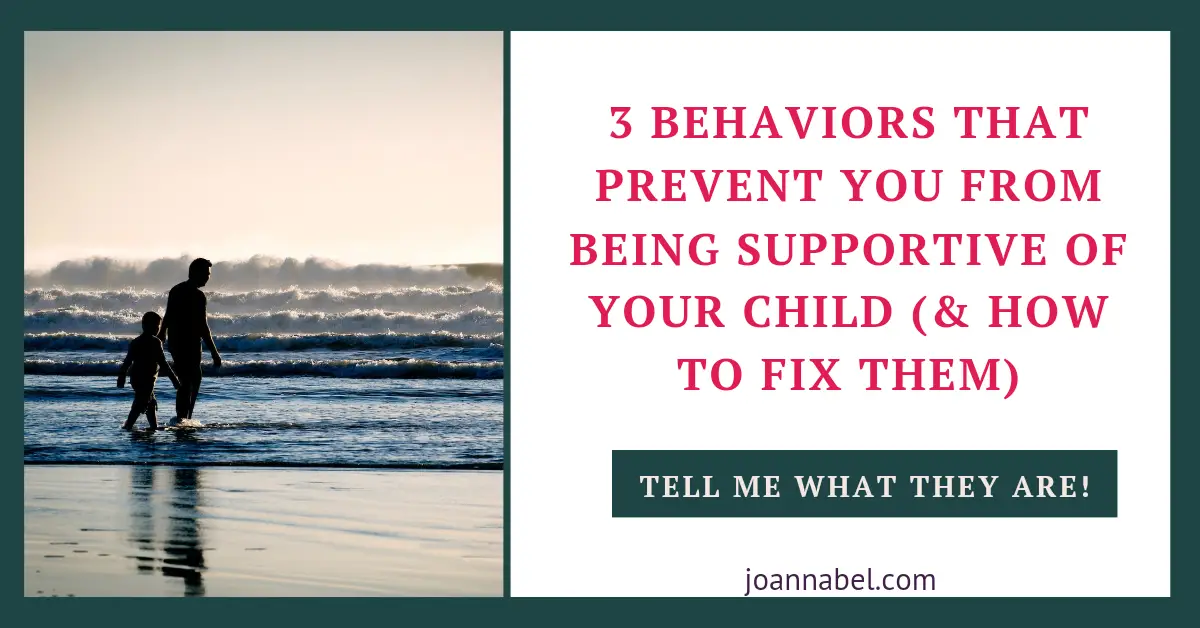When it comes to parenting, one of the most critical aspects is how emotionally responsive we are to our children. The importance of responsive parenting cannot be overstated, as it plays a significant role in shaping a child’s emotional, social, and psychological development.

Why Responsive Parenting Matters To Parents and Kids
At its core, responsive parenting involves understanding and meeting a child’s emotional needs in a consistent, thoughtful, and timely manner. So, why exactly is this kind of parenting so crucial for a child’s well-being? Let’s explore how being emotionally warm and responsive directly benefits a child’s development.
Note: Although I am a Clinical Social Worker, engaging with this website does not establish a professional social worker-client relationship. The information provided here is for general purposes only and should not be considered professional advice. While we strive to ensure accuracy and reliability, this content is not a substitute for professional guidance. For specific concerns, issues, or situations, it is essential to consult a qualified professional and present your situation. Read the full Disclaimer here.
THE IMPORTANCE OF RESPONSIVE PARENTING

Responsive parenting is important because it meets a child’s core emotional needs for connection, security, and validation, fostering their emotional, social, and psychological development. By being emotionally warm, empathetic, and consistent, parents help children build self-worth, trust, and resilience, setting the foundation for lifelong well-being and healthy relationships.
Let’s get into more details to help you implement this more easily. We’ll start with the first reason why responsive parenting is important.
1. Meeting A Child’s Emotional Needs
Children (people) are born with a deep need for emotional connection. They crave closeness, reassurance, and validation, especially from their primary caregivers. Responsive parenting targets these needs, ensuring that children feel safe and secure within their relationships with the adults around them.
By being emotionally available, parents fulfill a child’s fundamental needs for:
- Closeness and emotional warmth
- Connection with others
- Being seen, heard, and acknowledged as worthy
- Feeling appreciated and visible
- Being empowered and encouraged
- Receiving reassurance and comfort
- Having dependable, trustworthy adults in their lives
- Experiencing physical touch that feels safe and comfortable .
When parents meet these needs successfully, they not only help their child feel loved and supported but also create a foundation for healthy emotional development.
This emotional stability is key to forming secure attachments and trust in others, which a child will carry with them throughout their life.
2. Responsive Parents Build A Foundation For A Secure Relationship
One of the most significant benefits of responsive parenting is the establishment of a secure parent-child attachment. This bond is critical because children rely on their parents or caregivers for a sense of security.
When parents respond to their child’s needs in a consistent and loving way, it builds trust. The child begins to understand that their emotional needs are acknowledged and met, which in turn helps them feel safe in their world.
This secure attachment becomes the foundation for positive emotional regulation. Children who feel safe with their parents are more likely to be emotionally resilient and capable of handling stress or challenges as they grow in a way that is good and not harmful for them.
Furthermore, when children can rely on secure relationships with their caregivers, they are better equipped to form healthy relationships outside the home as they learn what it means to safely and meaningfullly connect with others.
3. Supporting a Child’s Self-Worth And Confidence Through Responsiveness
Responsive parenting also plays a key role in nurturing a child’s self-worth. When parents consistently show that their child is worthy of attention, care, and respect, they are helping to build their child’s self-esteem.
Children thrive when they feel valued and capable. A parent who responds to their child’s emotional cues—whether through physical affection, verbal encouragement, or simply being present—helps the child internalize the belief that they are loved and accepted as they are. This also includes promoting their independence as well as (positive) discipline because you have to also respond to the misbehavior in a safe and timely manner.
Additionally, emotional warmth and validation from parents enable children to feel empowered. Responsive parents are not only there to provide comfort during difficult times but also to acknowledge and celebrate successes. This sense of being seen and acknowledged contributes to the child’s developing self-confidence.
4. It Alignes With A Parent’s Role in Teaching Emotional Regulation
By being responsive, parents also teach their children valuable emotional regulation skills. Children need to learn how to manage their emotions, especially in challenging situations. A responsive parent helps a child navigate these emotions by offering guidance and supporting them in adopting healthy coping strategies.
This doesn’t mean parents need to be perfect, but it does mean that they should aim to remain as calm as realistically possible and patient when addressing their child’s feelings. When a child sees that their parent can handle difficult emotions with balance and understanding, they are more likely to develop similar behaviors.
Over time, this helps the child develop emotional regulation—an essential life skill that will serve them well in relationships, academic pursuits, and their eventual transition into adulthood.
5. Responding To A Child’s Individual Needs
Responsive parenting well acknowledges that children have specific emotional and physical needs at different stages of their development. By being sensitive and attuned to these needs, parents ensure they are not just providing basic care but are truly meeting the child where they are.
For example, younger children may need more reassurance and physical affection to feel safe, while older children may seek more independence but still require guidance and emotional support.
A responsive parent recognizes when to step in and when to step back, giving the child room to grow while still offering the support they need.
6. A Positive Impact on Long-Term Well-Being
The positive effects of responsive parenting extend beyond childhood and into adulthood. Children who grow up with emotionally responsive parents are more likely to experience positive mental health outcomes as they age.
Therefore they’re are better equipped to form meaningful relationships, handle stress, and navigate life’s challenges.
In fact, the ability to maintain strong emotional connections and handle emotions in a more balanced way can reduce the likelihood of mental health struggles in later years. So by responding appropriately to a child’s emotional needs, parents are not only shaping their child’s present but also their future.
7. Responsive Parenting Meets The Human’s Need For Empathy and Understanding
Responsive parenting is rooted in empathy—the ability to understand and share the feelings of another. When parents practice empathy, they are more likely to offer comfort and guidance in a way that resonates with the child. It’s not just about reacting to the child’s emotions; it’s about truly understanding them and providing the right type of response.
By being empathetic, parents help children feel that their feelings matter. This leads to children who are more in touch with their emotions and more capable of expressing them in healthy ways. As a result, they grow up with a strong sense of emotional security and are better able to navigate the ups and downs of life.
It also involves decentering where you’re able to experience how a person thinks and from this standpoint respond to their needs at the moment. Having both skills perfectly addresses the human need for being understood and acknowledged, especially in a situation of difficulty, struggle, or pain.
Latest Posts:
- 100 Ways to Challenge Yourself (Without Stretching Yourself Too Thin)

- What To Do When Your Parent Struggles With Alcohol

- How To Navigate Moving to a New Home With Your Kids

- Prenups for Young Couples (A Modern Approach)

- What Happens When You Sign A Prenup (Relationship-Wise + Legally)

- Last-Minute Checklist Before You Hit “Sign” on Your Online Prenup

FINAL THOUGHTS ON WHY RESPONSIVE IS IMPORTANT
In conclusion, responsive parenting is essential for a child’s emotional and psychological development. It helps children feel loved, secure, and validated, allowing them to grow into confident, emotionally intelligent individuals. By responding to a child’s emotional needs with warmth, empathy, and consistency, parents lay the groundwork for a lifetime of healthy relationships, emotional resilience, and well-being.
If you’re aiming to be the best parent you can be, make it a priority to be emotionally present, responsive, and attuned to your child’s needs, and watch them blossom into the secure and confident individuals they are meant to be.
I’ll see you in my next post such as: 19 Signs Unsupportive Parents Show.









Leave a Reply